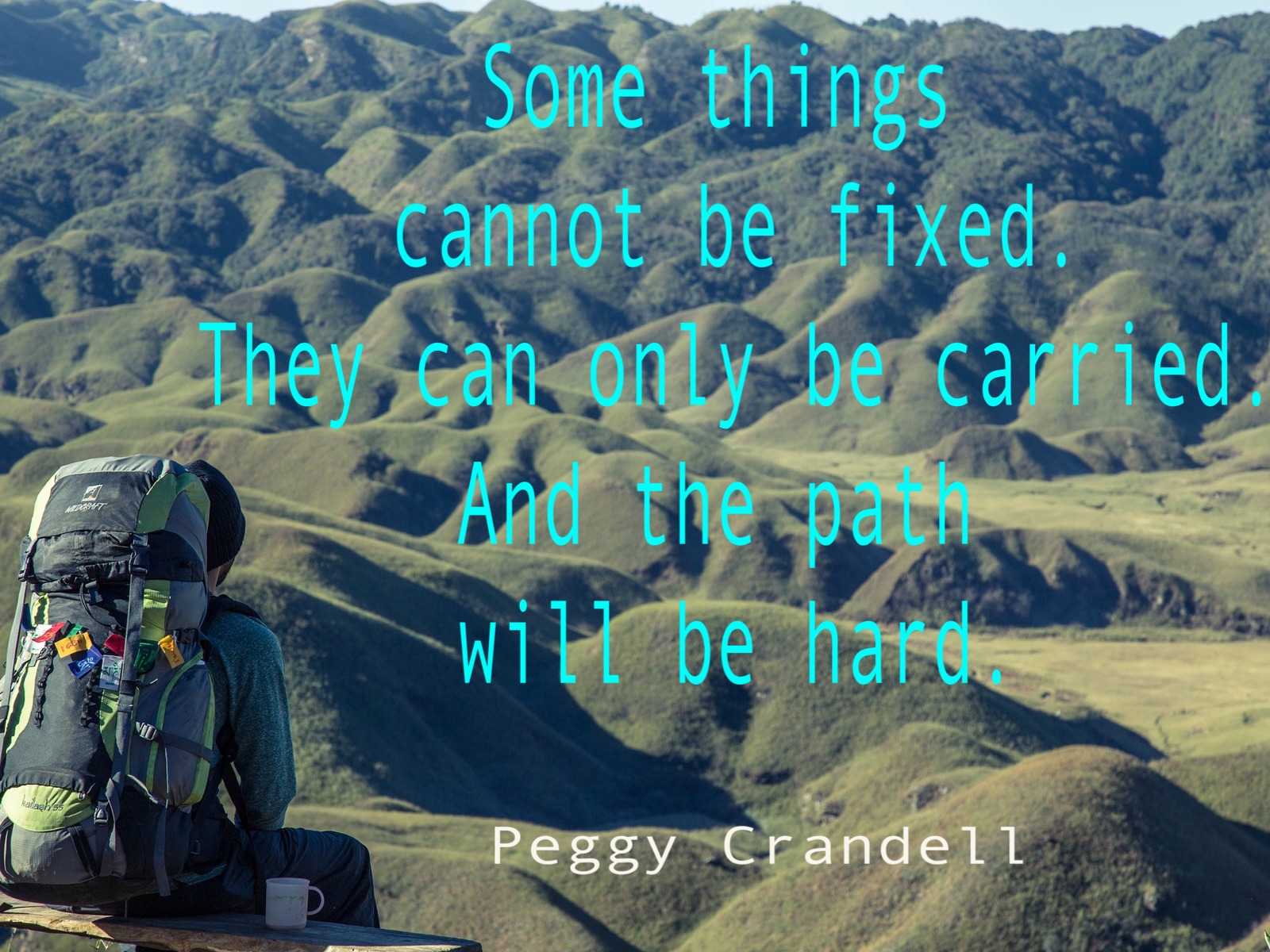My anger problem is a symptom of something else, my grief from the loss of my son.
I received an invoice for services from a psychiatrist my son say two and a half years ago. At the time, I encouraged him to see a psychiatrist to treat his attention deficit disorder (ADD). He previously was treated by a primary care physician and before that, a pediatrician. He only saw this doctor once. He renewed his prescription, made a subsequent appointment, but never kept it. I know this because my son was under 26 years of age, and he was on the family health insurance. I pay the bills, and the clinic billed him a no-show fee. I talked to him about why he did not keep the appointment. He shared with me the psychiatrist wanted to do a learning disability assessment; he felt she was headed down the wrong track, and insurance would not cover the tests. Really, the psychiatrist did not click with him, so I let it go. At least he was seeing a therapist.
The haunting bill for services from two and a-half years ago.
I know I paid that particular bill two and a half years ago. It is in my health savings account (HSA) billing history. I previously downloaded the payment history for our tax records and that information was archived on my computer.
I called the clinic’s billing department. I explained I was inquiring about the bill for my deceased child. She asked for his birthday and address. This seems like an innocuous question, but my voice quivered as I answered. She then followed up with, “What can I do for you?”
I composed myself, no longer crying, and said in my new angry voice, “Why the fuck are you billing me for services two years old, which I paid, for a person who is no longer alive, for services that did not help, as he died by suicide?”
Her immediate replies were not adequate. She said I did not need to swear, and then went on to blame the insurance company, and directed me to inquire with them.
I deepened my voice, in a shortened tone, and replied, “Unfortunately I am educated on the feelings of losing a loved one to suicide and anger is a familiar feeling; you are a behavioral health clinic, you should be prepared to deal with people like me.” I went on, “You are requesting payment for services that did not prevent his suicide. Your clinic is asking for payment, not the insurance company; therefore, I am calling your clinic, the billing party.”
I then firmly requested she finds a supervisor who was capable of dealing with my inquiry.
I could hear in her voice she was crying when she asked me to wait and then put me on hold.
While waiting, I found my spreadsheet documenting full payment. After a long wait, another person took the call, apologized, said she was sorry for my loss, then told me to disregard the invoice. I thanked her, ended the phone call, and immediately shredded the bill.
I told my loss support group, "I have an anger problem."
A couple of days later, I shared this story with my suicide loss survivor group. I started my account with, “I have an anger problem.” The group reconfirmed my story is not unique, meaning, anger is really grief, and it comes out in uncharacteristic ways such as swearing.
The encounter also includes undertones of other issues for me.
As time passes, my tolerance is less for others who make foot in mouth mistakes. These mistakes are not intentional, some realize once it is out there, others have no idea what they said or did that did not sit well with me. Things like, connotations to stop feeling the way I am feeling, not acknowledging the debilitating cognitive and physical effect grief has, wanting me to be back to the way I was before my son died. Avoidance because they do not know what to say. All of these things are a more significant symptom of our culture where we do not talk about unhappy things. How will society understand grief when no one talks about the reality of it?
As I hear other loss survivor stories, I am gaining an intolerance for the flawed U.S. health care system and health insurance. They need to acknowledge their inadequacies by looking at the growing statistics of those with mental health conditions and the suicide rates, take it seriously, and then listen to those who have accessed it. These institutions and policymakers should pay the same attention to the mental health crisis as they do for solving cancer, diabetes, opioid misuse, heart disease, and the most recent publicized illness of the year.
"I sat with my anger long enough until she told me her real name was grief, (TheMindsJournal)."
A friend reminded me of this meme I have seen on social media and its relevancy. Two women are sitting side by side on a brick wall, one dressed in white, another in black. The quote is,” I sat with my anger long enough until she told me her real name was grief, (TheMindsJournal).”
If you read anything about grief and grief symptoms, the list will include anger. I have learned from others who have written about suicide grief, that anger can become a scary comfort. It is easier to fall back to anger than feel the other emotions of guilt, shame, blame, depression, despair, anxiety, immense sadness, loneliness, etc.. There are at least ten other emotional effects I can name. If you are a lost survivor, you likely know the others from experience.

Turn anger into something productive.
I am sorry to the person who landed with my phone call, as she was not responsible for making me a victim of their accounting incompetence. My therapist, if I still saw one, would probably tell me I need to turn that anger into something productive. Right now, in year two, I am too tired to be productive. The fog has partially lifted and replaced with the black reality that my son is not coming back.
The reality is, Year 1 sucked, Year 2 sucks too. I will never get over this. You do not heal from grief, there is no cure. I have learned from others further along in their grief, that with time, you learn to deal with it better. They have learned to change the pain from reactive to proactive, doing something positive for themselves, to advocate, or honor their loved one publicly. I have read stories of loss survivors who go on to do inspirational things like public speaking, starting a non-profit, writing a book, hosting a podcast, running a marathon for a cause.

Personally, I am proud of the accomplishments of new friends who are recent fellow survivors. They do amazing things every day given the circumstances, like celebrating the life events of their child’s friends, write inspirational stories for publication, lead large organizations, teach our children, give back to the community, find the will power and physical stamina to do a headstand on a paddleboard, and find happiness in the small things.
I will try to be positive and recognize my accomplishments, like doing any form of exercise, passing on the weeknight glass of wine, not hibernating in my room all evening, eating a healthy meal, and calling a friend back.
It is likely you are in the ripple effect of suicide; 40-50% of the U.S. population has been exposed to suicide.
It is likely someone close to you will die because everyone will die. Now imagine someone close to you die by suicide. Most people cannot because the thought of it would be too painful.
Here’s the thing: there is a ripple effect of suicide, and there is high probability you are in that ripple but do not acknowledge it. A research-based estimate suggests that for each death by suicide, 147 people are exposed (6.9 million annually) – as many as 40-50% of the population has been exposed to suicide in their lifetime based on 2016 representative sample results. The number of survivors of suicide loss in the U.S. is more than 5.3 million (1 of every 62 Americans in 2017), (suicidology.org).
Take the time to learn about the grief process, for yourself, for someone you support, and not just about suicide loss survivors, but grief in general, because everyone dies. Stop pretending life is only sunshine and roses, or your isolated world will come crashing down on you eventually, and you will not be ready to deal with it.
September 8th through the 14th of 2019 is National Suicide Prevention Week. NAMI.org has published an edited version of this post on their blog as part of their campaign to bring awarness. Thank you NAMI.
National Suicide Prevention Week is the Monday through Sunday surrounding World Suicide Prevention Day. It’s a time to share resources and stories, as well as promote suicide prevention awareness.
Resources
If you are supporting a loss survivor, or if you are part of the ripple, you can find useful resources at these websites:
More Related Blog Posts
Anger Abounds – An emotion that comes with grief
Recent Posts
- A David and Goliath Story March 10, 2021
- Grief in the Time of Coronavirus April 19, 2020
- SMILE. Ugh, Please Do Not Ask Me February 19, 2020
- Memories Bring Back You January 27, 2020
- The Next Right Thing December 15, 2019

